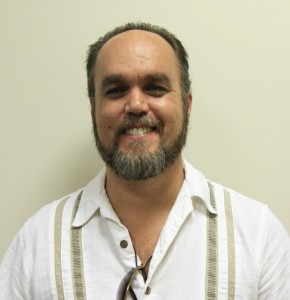 Back in the mid 1990s, we had a brief moment to celebrate progressive reforms in the prison system, a rarity here in Georgia.
Back in the mid 1990s, we had a brief moment to celebrate progressive reforms in the prison system, a rarity here in Georgia.
A high-ranking official in the state’s Department of Corrections, a man named Dr. Allen Ault, spearheaded a drive to address numerous allegations of sexual abuse against women in the DOC. His good work led to the departure of the agency’s commissioner and Ault’s appointment to the job. He ended up running the DOC from 1992 to 1995.
And he might still be there today, had he not run afoul of politics.
Ault was known for his progressive views, and at the time prisoners and many staff were hopeful he would bring much needed changes. He advocated for a refocusing of corrections toward rehabilitation, in the face of much internal resistance, and slowly the system began to improve.
Then he ran head on into Zell Miller, our conservative Democratic governor. Miller, who would go on to speak at the Republican National Convention, could not countenance Ault’s commitment to changing the system. Gov. Miller, one of the worst “tough on crime” alarmists of the 90s, put in his place a former state senator and funeral home director, as chronicled by Neal Peirce of the Washington Post Writers Group, who instituted a series of reactionary draconian measures that set the system back 20 years.
It was all done in the name of politics. I am not so naïve as to imagine that politics and sheer greed won’t enter into policy decisions, but still find myself disheartened by how often it is the driving factor.
For example, the Miami Herald reported last week that Mike Haridopolos, the state Senate president, personally intervened to avert bidding for the Florida Department of Juvenile Justice’s programs to monitor youth diverted away from incarceration and towards community-based solutions.
This action, to the tune of almost $16 million, was taken despite the DJJ’s acknowledgment that it wished to receive bids for the service, and that the company had not fully met its previous obligations. The company that was given the contract, Evidence Based Solutions, employs a lobbyist who happens to be a close friend of Haridopolos.
In Georgia HB 641, a complete rewrite of the juvenile code, passed the state House, had the support of the governor, but never made it to the floor in the state Senate. Despite estimated savings in terms of lives and money, many district attorneys opposed the bill because of what they said were higher costs. This, despite five years of work, happened in the last few days of the session. As reported by the Atlanta Journal Constitution, opponents moved to have the effort tabled until next year. Here we have a case not of corruption, but of ineptitude.
In California, Jerry Brown’s bold plan to eliminate the Youth Authority’s last three prisons has run into trouble. The governor now plans to leave the prisons open and charge the counties more to house their inmates there. The powerful guards’ union, a group that is invested in maintaining the status quo and has the political clout to back up its desires, opposed him.
The bottom line is that we as citizens need to hold our elected officials accountable for their actions. Whether it is corruption and cronyism, ineptitude and back room dealing, or lack of commitment, we have the power to put those in office who will do what is right, both fiscally and morally. We owe it to these kids to provide the best options available, and we deserve to have it done in a responsible way.
